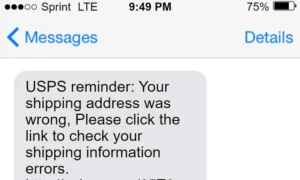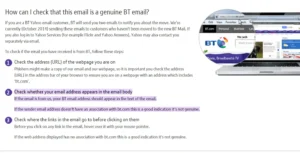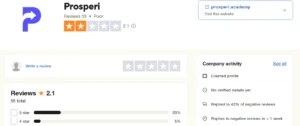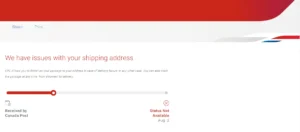In an era where misinformation and scams thrive, it is crucial for individuals to exercise caution and verify the legitimacy of various claims. One such claim that has gained attention is the rumored $6,400 government subsidy. Despite its widespread circulation online, it is essential to approach this information with skepticism.
This article aims to uncover the truth behind this alleged subsidy and shed light on the deceptive tactics used by scammers. By staying informed and vigilant, readers can protect themselves from falling victim to scams and make informed decisions regarding their financial well-being.
The Truth Behind the $6,400 Subsidy
There is no evidence to support the existence of the alleged $6,400 government subsidy, as thoroughly discussed in our knowledge base. Despite this, the rumor continues to circulate online, and individuals are still falling for the hoax.
Understanding the psychology behind why people fall for such scams is crucial in protecting oneself from online scams. Wishful thinking, authority and social proof, and anchoring bias are some psychological factors that contribute to individuals' susceptibility to the subsidy hoax.
People may be drawn to the idea of receiving a substantial amount of money from the government, especially during times of economic uncertainty.
To protect oneself, it is important to adopt a skeptical mindset, verify details from official sources, and be cautious of unsolicited offers.
Legitimacy Concerns: Online Stores and Reviews
The legitimacy concerns surrounding online stores and reviews have raised doubts and prompted consumers to exercise caution when making purchases. Online store reliability has become a significant factor in customer experiences with online shopping. As more and more consumers turn to online platforms for their shopping needs, the importance of trustworthy and reliable online stores cannot be overstated.
Customer experiences with online shopping vary greatly, with some reporting positive experiences and others encountering issues such as delayed deliveries, poor customer service, or receiving subpar products. These experiences, along with the prevalence of fake reviews and fraudulent sellers, have led to a growing skepticism among consumers.
To ensure a positive online shopping experience, it is crucial for consumers to thoroughly research the reliability of online stores before making a purchase. This can involve reading customer reviews, checking for secure payment options, and verifying the store's reputation through reputable sources. By exercising caution and being mindful of potential red flags, consumers can protect themselves from fraudulent sellers and make informed purchasing decisions.
Beware of Scams and Fraudulent Activities
Individuals should remain cautious and vigilant, as scams and fraudulent activities continue to pose a significant threat to their financial security and personal information. It is important to be aware of common red flags in online scams to help protect oneself. Some key indicators include:
- Unsolicited offers: Be wary of unsolicited emails, messages, or phone calls that promise large sums of money or other benefits.
- Requests for personal information: Legitimate organizations will not ask for sensitive information like social security numbers or bank account details via email or text.
- Poor grammar and spelling: Many scams originate from foreign countries, so be alert to poor grammar and spelling mistakes in communications.
To protect yourself from fraudulent schemes, consider these tips:
- Verify details: Research and verify information from official sources before taking any action or providing personal information.
- Use secure websites: Ensure that websites you visit have secure connections (https://) and look for trust seals or security badges.
- Report suspicious activity: If you encounter a scam or fraudulent scheme, report it to the appropriate authorities or organizations.
Evaluating Product Effectiveness: Reviews and Analysis
To accurately assess a product's effectiveness, it is crucial to consider both customer reviews and in-depth analysis.
Evaluating customer satisfaction through user ratings and testimonials provides valuable insights into the product's performance from real users. These reviews can highlight the strengths and weaknesses of the product, allowing potential buyers to make informed decisions.
Additionally, comparing product claims to actual results is essential in determining the validity of marketing hype. Claims made by the manufacturer or seller should be scrutinized and compared to the experiences shared by customers. This analysis helps separate exaggerated claims from actual results, ensuring that consumers are not misled by false advertising.
Insurance, Travel, and App Legitimacy: Customer Feedback and Complaints
One must carefully consider customer feedback and complaints when evaluating the legitimacy of insurance, travel, and app services. This is especially true for services such as Care Supreme Direct Health Insurance and Metawoz.com. By analyzing customer feedback and complaints, one can gain valuable insights into the quality and reliability of these services.
Here are three key points to consider:
- Care Supreme Direct Health Insurance: It is important to review customer feedback and complaints to assess the overall satisfaction of policyholders, the ease of claims processing, and the coverage provided. This will help determine if the insurance provider is trustworthy and meets the needs of its customers.
- Metawoz.com: By examining customer feedback and complaints about Metawoz.com, one can evaluate the platform's reliability, user experience, and the quality of services offered. This will help determine if the website is legitimate and if it provides a positive user experience.
- Overall Reputation: In addition to specific feedback and complaints about these services, it is also important to consider the overall reputation of the companies behind them. Researching their track record, customer satisfaction ratings, and any regulatory actions can provide a more comprehensive understanding of their legitimacy.
Frequently Asked Questions
How Can Individuals Protect Themselves From Falling for the $6,400 Government Subsidy Hoax?
To protect themselves from falling for government subsidy scams, individuals should exercise vigilance, verify information from official sources, and be cautious of unsolicited offers. By staying informed and skeptical, they can spot fake subsidies and avoid becoming victims of fraud.
What Are Some Red Flags to Look Out for When Assessing the Legitimacy of Online Stores?
When assessing the legitimacy of online stores, it is important to watch for red flags that indicate potential scams. These red flags may include suspicious website designs, unsecure payment methods, lack of contact information, and negative customer reviews.
What Are the Common Characteristics of Paypal Bitcoin Scam Emails and the Text Scam Claiming to Be From NZ Post?
Common characteristics of scam emails include requests for personal information, urgency, and poor grammar. To identify fake texts, verify the sender's identity, be cautious of unsolicited messages, and avoid clicking on suspicious links.
Are There Any Concerns or Negative Reviews About the Trust Kredit Loan App?
Concerns and negative reviews about the Trust Kredit Loan App have been reported by users. Some common issues include high interest rates, hidden fees, and poor customer service. It is important to thoroughly research and consider these factors before using the app.
Can You Provide Information on the Ongoing Lawsuit Against Buzzfeed for Potential Privacy Violations in 2023?
The ongoing lawsuit against BuzzFeed in 2023 pertains to potential privacy violations. The case involves allegations of improper handling and dissemination of personal information, raising concerns about privacy protection and ethical practices within the company.
Conclusion
In conclusion, it is crucial for individuals to exercise caution and skepticism when encountering claims such as the rumored $6,400 government subsidy.
Misinformation and scams are prevalent in today's digital age, making it essential to rely on reputable sources and conduct thorough research to verify the legitimacy of such claims.
By staying informed and vigilant, individuals can protect themselves from falling victim to scams and make informed decisions regarding their financial well-being.

















































